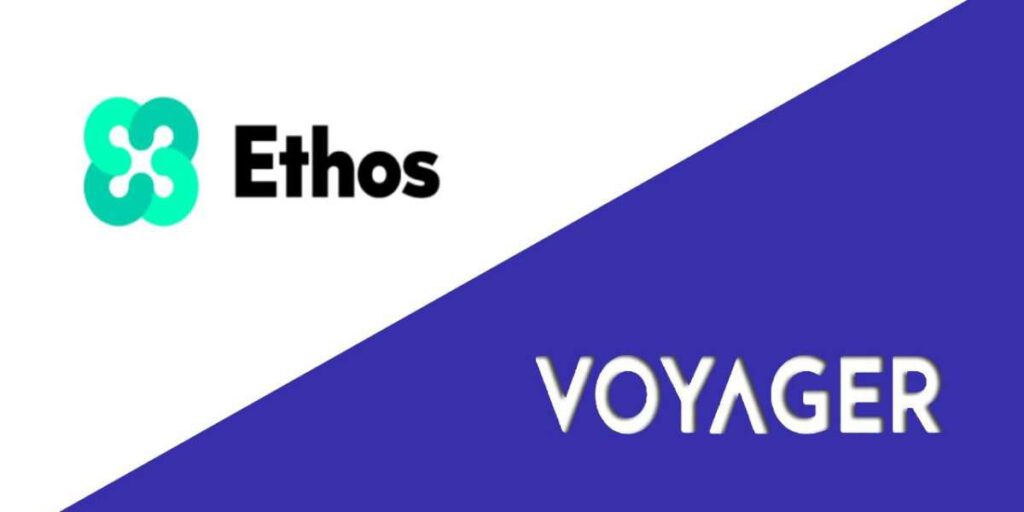The cryptocurrency industry still feels the aftereffects of the Voyager incident in 2022. Although the bankrupt crypto lender proceedings still continue, Ethos.io plans to do things “the right way”. Nevertheless, rekindling the initial focus of Voyager of decentralization, transparency, and customer protection will be a steep task.
Why Voyager Filed For Bankruptcy
The crypto industry had a rude wake-up call earlier in 2022 when popular lending provider Voyager filed for bankruptcy. The news came in July of this year after the company suffered badly from a massive drop in crypto asset prices. Unfortunately, 2022 Has been a very bearish year for Bitcoin, Ethereum, and other assets, and there has yet to be any real improvement.
However, issues for Voyager originated elsewhere. The company was, among others, tied to Three Arrows Capital, a hedge fund taking loans to “gamble” on crypto asset prices. 3AC Made the unfortunate decision of betting big on TerraUSD (UST), the Terra-based stablecoin that collapsed around the same time. As a result, 3AC was forced to default on Voyager borrowings to the tune of $670 million.
The issue did not end there either, though. As customers scrambled to get funds out of Voyager, the provider’s initial claims of “funds are protected by the FDIC” were wiped off the table. Voyager maintained cash deposits with Metropolitan Commercial Bank, and FDIC insurance applies to cover the failure of a bank, not its clients, like Voyager. The company ultimately had to remove those claims after a cease-and-desist letter from the FDIC and Federal Reserve.
Ethos 2.0 And “Voyager, The Right Way”
People following Voyager from day one may recall the lender used technology developed by Ethos. Although the lender used a centralized solution in the end – and went bankrupt because it did not fully embrace decentralization – the initial Ethos team members still see merit in the approach. More specifically, they aim to create the “right version of Voyager,” catering to novice and intermediary users who mainly rely on centralized exchanges.
Taking control of funds is crucial in the crypto world. However, not relying on intermediaries is the optimal approach, and Voyager fell short on that front. Ethos 2.0 wants to help those users and make self-custody easy and accessible. In addition, users gain access to trading without compromising market access for security.
Under the hood, Ethos 2.0 uses “Magic Keys,” which enable users to “unlose their keys”. Users can experiment with self-custody in a secure environment through enterprise-grade key encryption, sharding, and backup solutions. Users can create keys – only if they want to trade -. If a key is lost, they can submit the encrypted version and answer security questions before completing two-factor authentication. Completing the process will see Ethos release the key’s third shard to restore the keys. However, Ethos has no access to user keys or funds, only the third shard.
Other solutions provided by Ethos 2.0 include optimal price execution across decentralized exchanges, rewards for trading and bonus tokens for learning about decentralized finance, and access to staking opportunities and generating personal smart contracts.
The Olive Branch To Voyager Users
The vision of Ethos 2.0 improves upon Voyager’s multiple shortcomings. In addition, the team extends an olive branch to victims of the Voyager bankruptcy through “recovery tokens.” These tokens should help affected users enter the decentralized world and cast off the shackles of centralized intermediaries. One billion ETHOS tokens are allocated to the recovery process, with an active airdrop process for VGX holders and Voyager creditors, launched just a few days ago.
Since the collapse of Voyager, crypto users have been looking for alternatives. There are many options, although only three protocols – Aave, JustLend, and Compound – represent over $1 billion. Whether Ethos 2.0 can become the fourth entrant on that list remains to be seen. However, it embodies the decentralized approach Voyager should have taken and stuck to, and that idea can prove beneficial.


